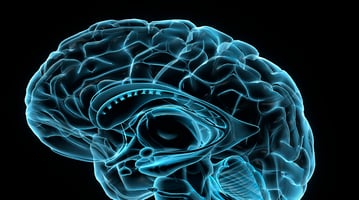Third-Line Electroconvulsive Therapy May Be Best for Patients With Treatment-Resistant Depression
 |
“As clinicians we always worry about patients getting routed through treatment after treatment, at which point they become more treatment resistant,” senior author Daniel Maixner, M.D., who directs the ECT program at Michigan Medicine, told Psychiatric News. Decades of research have shown that ECT is the most effective way of achieving remission in patients with treatment-resistant depression (TRD), he noted. The findings of this study suggest ECT is also cost-effective earlier in the treatment course of depression.
Relying on data from published depression studies, including the STAR*D (Sequenced Treatment Alternatives to Relieve Depression) trial, Maixner, Eric Ross, M.D., and Kara Zivin, Ph.D., of the University of Michigan Department of Psychiatry used a mathematical model to simulate cost and quality-of-life outcomes for patients with TRD who are exposed to different treatments.
The model projected that over four years, ECT would reduce time with uncontrolled depression from 50% of life-years to between 32% and 37% of life-years, with greater improvements the earlier ECT is offered. The model also predicted that offering ECT as a third-line treatment for depression would cost an estimated $54,000 per quality-adjusted life-year gained, well below the commonly accepted cost-effectiveness threshold of $100,000 per quality-of-life year, according to the authors.
Ross noted that cost-effectiveness does not mean cost saving. “When we say ECT is cost-effective, we are not saying that it’s going to save money, but we are saying that the money that is spent on ECT will get a very good return in terms of its improvement in health.”
The authors acknowledged that many clinicians may find ECT as a third-line treatment to be “overly aggressive,” as ECT is often considered a “last-resort treatment for depression.” They wrote, “To understand how third-line ECT can be reasonable and cost-effective, it is crucial to recognize how challenging treatment-resistant depression is to manage.”
Charles Kellner, M.D., chief of Electroconvulsive Therapy at New York Community Hospital in Brooklyn, N.Y., who was not involved with the study, spoke enthusiastically of the findings. “I think this is a landmark study,” he told Psychiatric News. “The importance of the article is that it finally provides data for a rationale to use ECT earlier rather than at the very end of other treatment options. It is what the field has needed to put ECT in the correct context.”
For related information, see the Psychiatric News article “ECT Can Be Considered Earlier for Severe Depression, Expert Says.”
(iStock/AJ_Watt)






